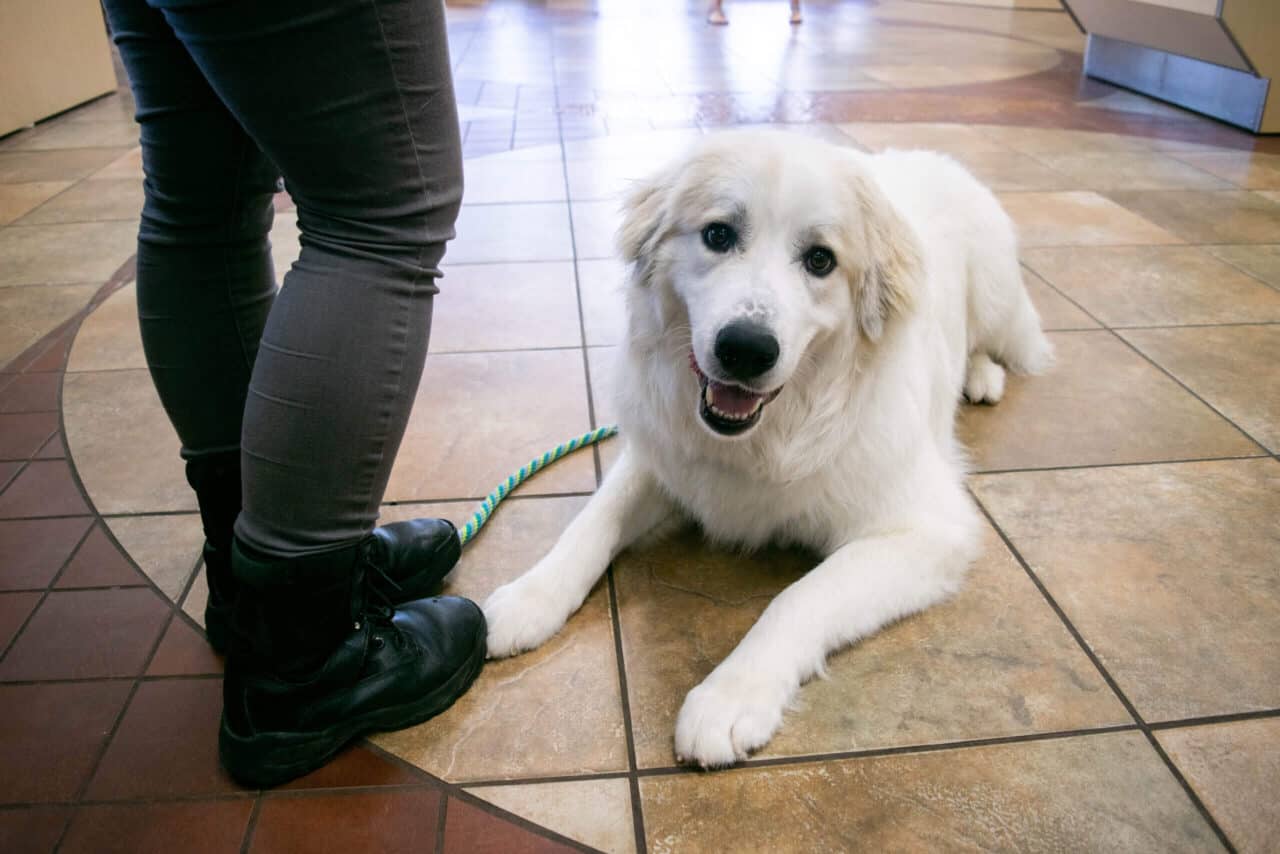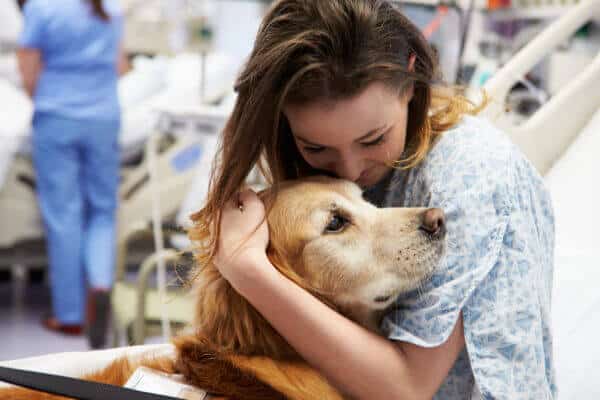Therapy Dog Training & Canine Good Citizen
The Petropolis Therapy Dog Program is designed to help teach you and your dog the skills needed to get certified through Therapy Dog International (TDI) and Canine Good Citizen. The process is a team effort between you and your dog, and we are here to assist you along this exciting journey.
About Our Therapy Dog Program
This therapy dog training program begins by teaching your dog the core obedience skills needed to pass your therapy dog certifying test. More importantly, we will continuously evaluate your dog to recognize where their strengths and weaknesses are so we can best help them work through common therapy dog scenarios (different sounds, objects, people, and places).
A huge part of our training also involves one-on-one sessions with you. Since you’ll be the one with your dog during their therapy work, we will also need to “train” you! All our packages, including the Therapy Dog Program, include private lessons to help you continue practicing. We’ll also give you “homework” and goals to reach before your next lesson. At the end of the Therapy Dog Program you’ll have the opportunity to test for the CGC and CGCA test, followed by your TDI test.

What is Therapy Dog International?
What are the CGC and CGCA tests?
The Canine Good Citizen (CGC) is a test designed by the AKC to help build the human-pet bond and show that your dog is a well-mannered member of society. This is a two-part test that tests both your dog’s skills and your own! Once you’ve passed the CGC you are eligible to test for the CGCA (Canine Good Citizen Advanced). The CGCA tests you and your dog’s skills in the real world. Unlike the CGC that is held in a room or ring, the CGCA is tested out in a natural, often crowded, setting like a dog-friendly strip mall, store, or event. This test includes several advanced skills and is a great test to have before taking the TDI test to show that your dog has the advanced obedience skills needed for therapy work!

What Exactly is a Therapy Dog?
Therapy Dogs are not Service Dogs. Service Dogs are not simply a pet that provides comfort to it’s owner. It’s also not just a well behaved, well trained dog that is polite in public. A service dog has been trained to a high standard to perform specific skills. Such skills allow people with mental or physical disabilities to live more independent lives. These dogs are not considered to be pets. In fact, they are considered to be durable medical equipment. Service dogs are allowed ready access to all public spaces, without question, including workspaces, restaurants, hotels, grocery stores and everywhere in between.
Emotional Support Dogs (ESD) are also different from therapy dogs. ESDs are defined by the American with Disabilities Act (ADA) as,
“an animal [which] provides companionship, relieves loneliness and sometimes helps with depression, anxiety or certain phobias, but do not have special training to perform tasks that assist people with disabilities.”
This is an important distinction. Emotional Support Dogs are pets, not service dogs. They provide comfort to their person, but they are not going to facilities to provide comfort to others. They do not have permission to be in any public area that pet dogs are not allowed. The only allowances for ESDs is in pet-free housing and riding in the cabin of an airplane. A written prescription from a medical or mental health provider is required for Emotional Support Dogs.
For more information visit the blog Service Dog vs. Therapy Dog: What is the Difference?
Our Philosophy and Methodology
If you’re interested in learning more about our Therapy Dog Training Program or seeing if your dog may be a good fit to become a Therapy Dog please give us a call at 636-537-2322 to schedule a FREE one-hour training evaluation to meet with a trainer and discuss how to get started!

